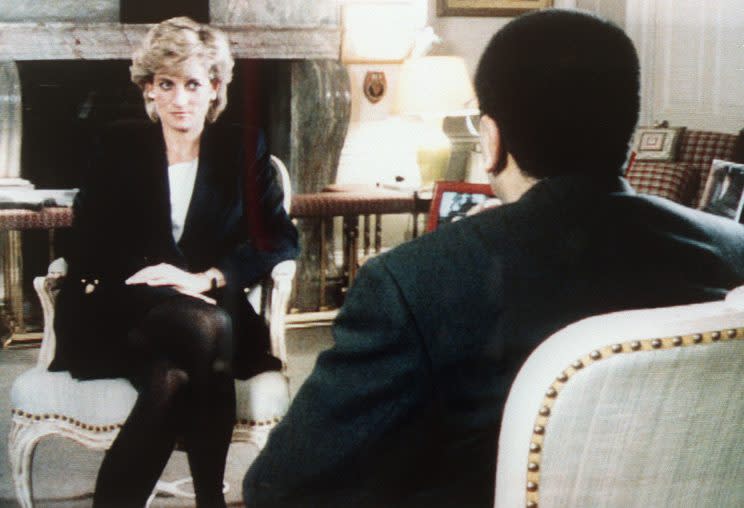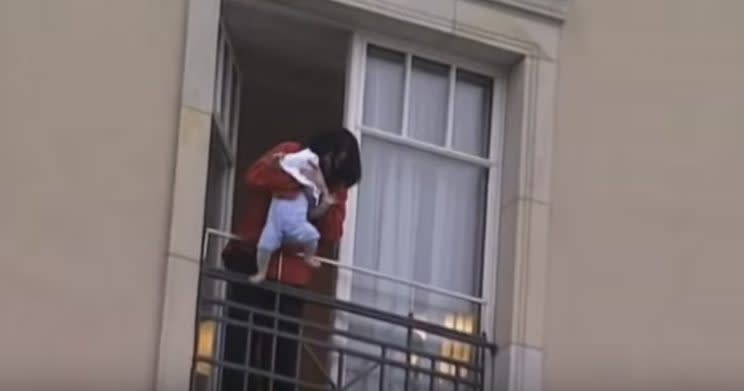The story behind the documentary that ruined Michael Jackson’s career

When the documentary ‘Living with Michael Jackson’ aired in February 2003, it was watched by an astonishing 15 million people in the UK, and a further 38 million on ABC in the US, as well as many millions more around the world.
Conducted by Martin Bashir, who has recently rejoined the BBC as its religious affairs correspondent, it was seen as a way of turning the eccentric singer’s reputation around, following the 1993 accusations of child abuse which had already battered his career.
Jackson, who was a huge fan of Diana, Princess of Wales, was keen on receiving the kind of public sympathy Diana got after her now infamous ‘Panorama’ interview with Bashir in 1995.

But instead it was an unmitigated disaster for Jackson, with the tabloid media focussing on his admission that ‘many children’ had slept in the same bed as him over the years. Jackson wanted to portray himself as a ‘Peter Pan’ character, but it could not have been more damaging for him.
The following day, The Sun ran the headline ‘Jacko kids at risk, social services probe mad star’, while the Daily Mail went with ‘Why I sleep with little boys, by Michael Jackson’. The footage of him dangling his infant son Blanket precariously over a balcony in Berlin, above a sea of paparazzi, was also totally irresistible to the tabloids.
The interview took place over eight months, from May the previous year, with Bashir visiting Jackson’s Neverland ranch, and then later meeting him in Las Vegas and Berlin. Things began in a fun, knockabout fashion, Bashir racing cars with Jackson around Neverland, learning the moonwalk, discussing his music, and climbing the Giving Tree, which Jackson said provided him with inspiration.

But it was during final leg of the interviews that Jackson must have first begun to suspect that the finished programme would not be what he had envisaged.
Bashir had broached the subject of his changing appearance, the abuse he himself suffered as a child at the hands of his father Joe – who would watch the young Jacksons rehearse holding a belt, and would mock him mercilessly over the shape of his nose and his acne – and his unorthodox relationships with children.
But in Miami, as their final meeting took place, Jackson became increasingly upset over the more aggressive line of questioning, about his operations, the biological parentage of his children, and his habits of sleeping in the same bed as minors or letting them sleep in his.
“Why can’t you share your bed? That’s the most loving thing to do, to share your bed with someone,” Jackson said in his defence. “You say, ‘You can have my bed if you want it. Sleep in it. I’ll sleep on the floor. It’s yours’. I always give the beds to the company.
“Everyone who knows me will know the truth which is that my children come first in my life and that I would never harm any child.”
Because of confidentiality agreements, Jackson refused to discuss the 1993 abuse case, though he did reveal he settled out of court to avoid ‘a long, drawn-out affair, like O.J.’.

Jackson was furious with the final programme, accusing Bashir of ‘utterly betraying him’.
“Martin Bashir persuaded me to trust him that his would be an honest and fair portrayal of my life, and told me he was ‘the man that turned Diana’s life around’,” he said. “Today I feel more betrayed than perhaps ever before – that someone, who had got to know my children, my staff and me, whom I let into my heart and told the truth, could then sacrifice the trust I placed in him and produce this terrible and unfair programme.
“Everyone who knows me will know the truth, which is that my children come first in my life and that I would never harm any child.”

“Michael is devastated and feels utterly betrayed by [the film], which he regards as a gross distortion of the truth and a tawdry attempt to misrepresent his life and his abilities as a father,” his spokesman added, branding Bashir a ‘salacious ratings chaser’.
Bashir did not get away lightly either, with many slamming what they saw as underhand methods to extract sensational results. The New York Times denounced his ‘callous self-interest masked as sympathy’.
In fact, Jackson, who also had a crew filming the documentary being made, issued his own footage later, where Bashir was seen to praise his parenting, in a film called ‘Take Two: The Footage You Were Never Meant to See’, which also featured interviews with the likes of Elizabeth Taylor, his former wife Debbie Rowe and Jermaine Jackson.

In his own defence, following the broadcast, Bashir said: “I don’t believe that I’ve betrayed Michael Jackson at all. I agreed that we would make an honest film about his life. The film was fair to his musical achievement and gave him every opportunity to explain himself. I’m not accusing anybody of being a child molester or a paedophile.”
However, Jackson’s career was left in ruins following the interview.
On hearing about Jackson’s death in 2009, Bashir was working for the ‘Nightline’ show on US network ABC. He told viewers: “I think it is worth remembering that he was probably singly, the greatest dancer and musician the world has ever seen.
“Certainly when I made the documentary, there was a small part of that which contained controversy concerning his relationship with other young people.
“But the truth is that he was never convicted of any crime, I never saw any wrongdoing myself. And whilst his lifestyle may have been unorthodox, I don’t believe it was criminal. And I think the world has now lost the greatest entertainer it has probably ever known.”

Fans denounced his words, however.
“You have some nerve, Martin Bashir,” one wrote on the Nightline website. “Some nerve to be eulogising about Michael Jackson after you eviscerated him so thoroughly. You masqueraded as someone who was representing his interests and then ruthlessly gutted him.”
Image credits: Rex Features/AFP/Getty/YouTube
Read more:
The tragic story behind 2POINTFOUR Children
The amazing story behind Princes Diana infamous Panorama interview
The Chase: 10 things you never knew about the Chasers

 Yahoo Movies
Yahoo Movies 
